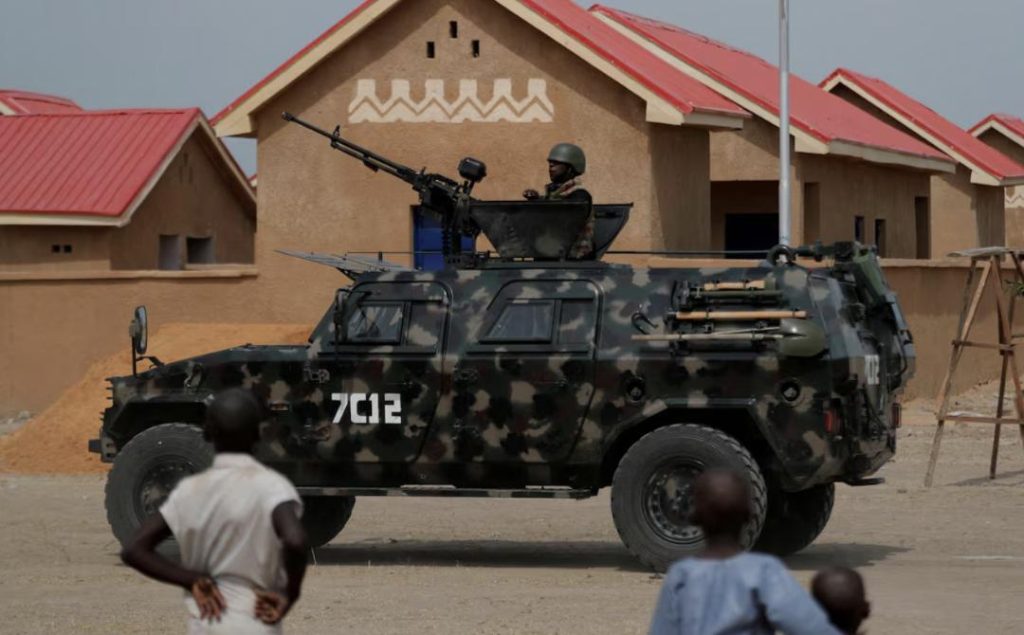
20,000 Flee Amid Islamist Militant Attacks in Nigeria
In a alarming development, at least 20,000 people have fled from Marte to Dikwa in Nigeria’s Borno State, following increasing attacks by suspected Boko Haram and Islamic State West Africa Province (ISWAP) assailants, according to Governor Babagana Zulum. This exodus comes just four years after residents returned to Marte, which was once controlled by insurgents, marking a significant setback in the region’s efforts to rebuild and stabilize.
Borno State, located in the northeastern part of Nigeria, has been plagued by an upsurge in attacks by Islamist militants this year. The region has been a hotbed of insurgency for over a decade, with Boko Haram and its offshoot, ISWAP, waging a brutal campaign of violence and terror against civilians, military personnel, and government officials.
The latest wave of attacks has seen the towns of Marte and Dikwa come under sustained assault, with reports of heavy gunfire, bombing, and looting. The attacks have left many residents displaced, with thousands fleeing to neighboring towns and cities in search of safety.
Governor Zulum, who visited the affected areas, described the situation as “very dire” and urged the Nigerian government to take immediate action to address the crisis. “The situation in Marte is very dire, and we urge the federal government to take immediate action to address the security challenges in the area,” he said.
The governor’s comments come as the Nigerian military struggles to contain the insurgency. The military has been criticized for its handling of the crisis, with many accusing it of being ineffective and corrupt. The government has also been accused of not doing enough to address the root causes of the insurgency, including poverty, unemployment, and political marginalization.
The exodus from Marte is a significant blow to the region’s efforts to rebuild and stabilize. The town was once a thriving commercial center, with a rich agricultural heritage. However, the insurgency has left the town in ruins, with many homes and businesses destroyed or abandoned.
The humanitarian situation in the region is also worsening, with many residents struggling to access basic necessities such as food, water, and medical care. The Nigerian government has been criticized for its response to the crisis, with many accusing it of not doing enough to provide aid to affected communities.
The international community has also been called upon to provide support to the Nigerian government in its efforts to address the crisis. The United Nations has already pledged support to the government, with UN Secretary-General António Guterres calling for “urgent and sustained international support” to address the humanitarian crisis in the region.
The crisis in Nigeria is a stark reminder of the ongoing threat posed by Islamist militants in the region. The insurgency has already claimed thousands of lives and displaced millions of people, with many more at risk of being caught up in the violence.
In conclusion, the recent attacks in Marte and Dikwa are a stark reminder of the ongoing threat posed by Islamist militants in Nigeria. The exodus of 20,000 people from Marte is a significant blow to the region’s efforts to rebuild and stabilize, and highlights the need for urgent and sustained international support to address the humanitarian crisis in the region.



